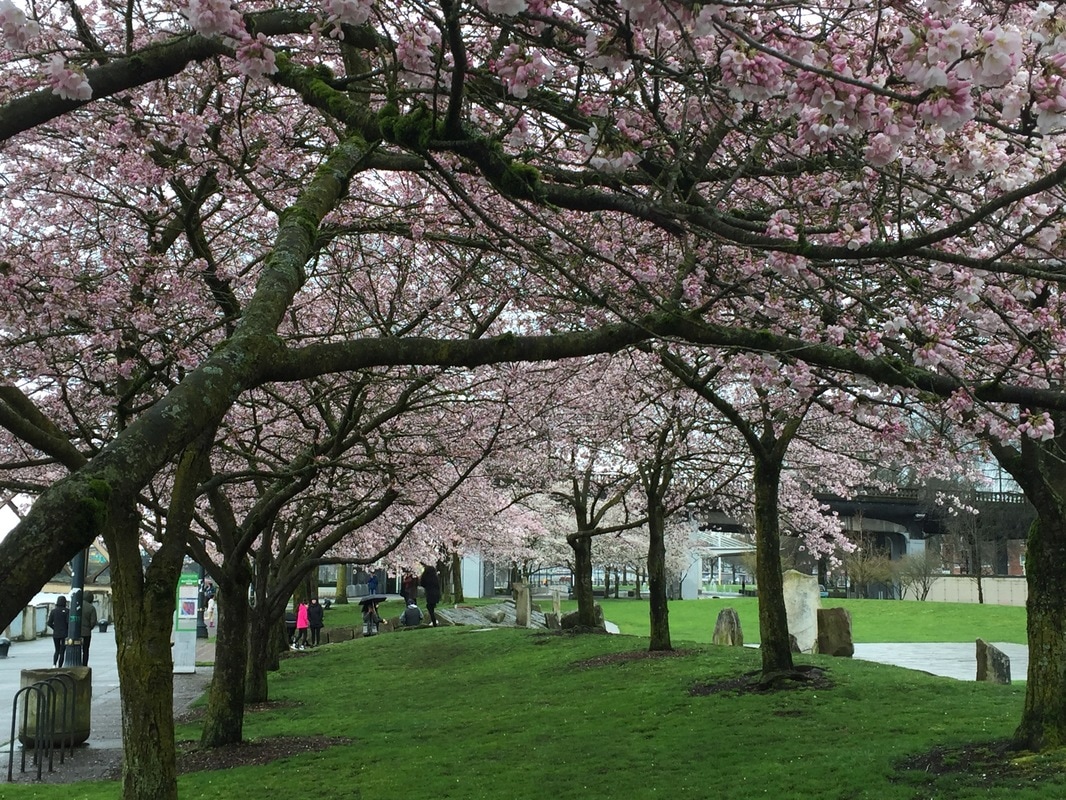 We heard some beautiful music, Sunday, and I want to thank everyone who came. This was an unusual class because this deeply reflective music can be difficult to listen to, one slow piece after another. Over our lifetimes, we build up associations with works such as Elgar's "Nimrod" and Barber's "Adagio for Strings" that can be painful and sad. Thank you for sticking with me! Here's what we heard: Allegretto from Beethoven's Seventh Symphony: Christian Thielmann conducts the Vienna Philharmonic: https://youtu.be/JNnuN8-wlwY Franz Biebl's Ave Maria: Chanticleer performs: https://youtu.be/9WSbq3TCcd0 "Nimrod" from "Enigma Variations" by Edward Elgar: Colin Davis conducts the London Symphony Orchestra: https://youtu.be/aqvOVGCt5lw Adagietto from Gustav Mahler's Fifth Symphony: Herbert von Karajan conducts the Berlin Philharmonic: https://youtu.be/Les39aIKbzE "At the River" by Aaron Copland: William Warfield, bass-baritone, Copland conducts the Columbia Symphony: https://youtu.be/liIePs_-ULQ Adagio for Strings by Samuel Barber: Dover String Quartet: https://youtu.be/lKrxPTePXEQ "Symphony of Sorrowful Songs" by Henryk Gorecki, David Zinman conducts the London Sinfonietta, Dawn Upshaw, soprano. We heard the second movement, starting at minute 26:48. https://youtu.be/Mcfy3UmnyDY "In Paradisum" from Gabriel Faure's Requiem: Ensemble Orchestral de Paris, Choeur Accentus, conducted by Laurence Equilbey. "In Paradisum" starts at minute 33:15. https://youtu.be/PnQl18sVyig
5 Comments
 Photo by David Stabler Photo by David Stabler Just to change the subject from music for a moment, I wanted to mention a bike ride I'm doing with my brother, this summer. Nothing to do with music! Bear with me while I figure out how to categorize this under "Cycling." Beginning in June, Martin, and I are cycling across the country. We start in Astoria, Oregon on June 18 and arrive in Portsmouth, New Hampshire on Aug. 7. Marty and I started a bike blog about how we're training -- soggily -- and how we're fueling, gearing up and feeling about the ride. We hope you'll follow along.  I enjoyed talking about music of grieving to Dave Miller on Oregon Public Broadcasting's program, "Think Out Loud," yesterday. We had an engaging conversation about why sad music is pleasurable to listen to and the difference between sad music and grieving music. I think there are subtle distinctions. We also had time to hear snippets of some gorgeous music. If you'd like to hear a preview of my class on grieving music, March 26, you can listen to yesterday's segment here.  David Stabler David Stabler Sad music can be some of the most beautiful in the world. And researchers are discovering why melancholy music has such a powerful effect on us. In my next class, March 26, we will listen to music of the gravest beauty: The consoling serenity of "In Paradisum" from Gabriel Faure's Requiem; the rising heartbreak of the Allegretto from Beethoven's Seventh Symphony; the nostalgia of the simple American folksong, "Long Time Ago" and the noble power of "Nimrod" from Edward Elgar's "Enigma Variations." Plus works by Bach, Schubert, Mahler and Gorecki. Some scientists think melancholy music is linked to the hormone prolactin, a chemical that helps curb grief. The body prepares itself to adapt to a traumatic event, but when that event doesn't occur, the brain is left with a pleasurable mix of opiates with nowhere to go. We like to listen to sad music because it can amplify the feelings of sorrow and loss, says Tuomas Eerola, professor of music cognition at Durham University. These experiences often aren’t pleasurable, but reflecting on them can be therapeutic, he says in a story on Lifehacker. Melancholy, often thought of as a negative feeling, can actually enrich creativity. People who listen to sad music may simply enjoy “being moved.” I know I am one of those people. I bet you are, too. In a recent study led by Eerola, published in Frontiers of Psychology, many participants who listened to sad-sounding music described feeling “intense, pleasurable, and yet sad emotions” all at once. "Additionally, the same participants showed high levels of “empathic concern,” or the ability to empathize with someone’s perceived emotion while also feeling tenderness, compassion, and sympathy for them," writes Patrick Allan. "Basically, if you’re a highly empathetic person, there’s a good chance you feel a whirlwind of emotions when you listen to sad music -- and you probably find it enjoyable overall." "Empathy is one of the most important skills you can develop because it can strengthen your relationships and make you a happier, more gracious person." Come find out more, as we listen to these and other examples of powerfully beautiful music. |
AuthorDavid Stabler is a teacher, writer, dad and cyclist. He's working on a novel based on his childhood years living in Africa. In 2017, he rode across America with his brother. Archives
December 2020
|
 RSS Feed
RSS Feed